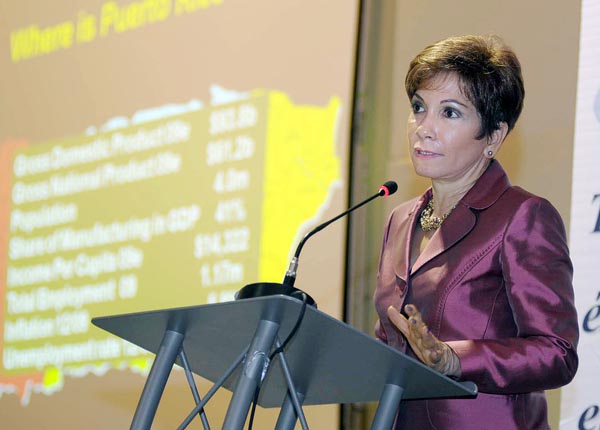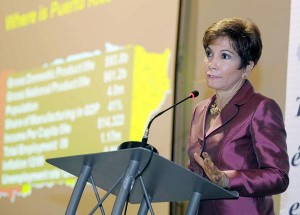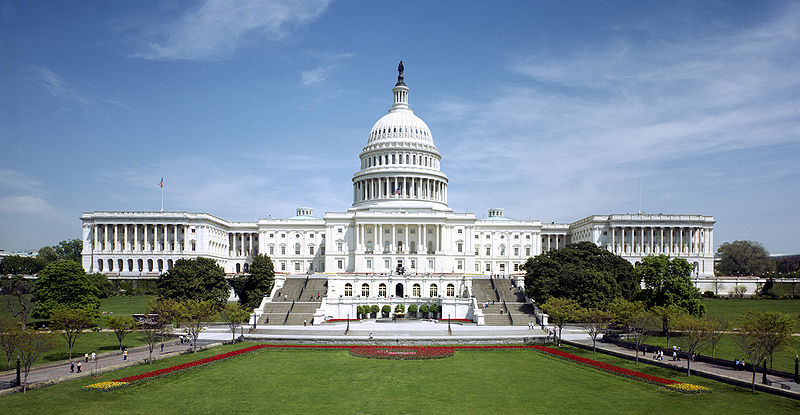Op-Ed: Game changers in Puerto Rico


Economist Heidie Calero is president of H. Calero Consulting Group, and author of this column. (Credit: © Mauricio Pascual)
According to the Merriam Webster Dictionary, a game changer is a newly introduced element or factor that changes an existing situation or activity in a significant way. Over the past eight years, the Puerto Rico economy has been in a terrible slump. Fiscal priorities have taken precedence over economic policies and time is running out.
We have eroded our tax base and maximized the limits of public debt of the central government as well as its public corporations. Our objective is to provide a concise but compelling look at some key elements that will change the course of the Puerto Rican economy and lead us to the path of recovery and growth, if only there is the leadership to execute and implement tough choices. This issue focuses on drivers and strategies that we know can work yet nothing happens.
Increase investment as percent of GNP
At the heart of economic growth is the process of investment, of capital formation in infrastructure, industrial and commercial buildings, hotels, and machinery and equipment. Puerto Rico achieved rates of real GNP growth in the 1960’s when real investment reached an average 30 percent of real GNP. As of 2013, this percentage was below 22 percent and GNP growth has either been negative or close to zero. How can this be achieved?
If public debt is not an option, then we have to go the route of alliances with public-private partnerships. This process has to be agile and with sophisticated monitoring by the government. But, more is required if we are to ensure that all residents have access to economic opportunities and income.
Hub for world-class innovation and telecom
In today’s world, competitiveness and connectivity are buzzwords that represent economic opportunities. Puerto Rico can boast having broadband that shortly will wrap the entire island. Productivity, not consumption, needs to be boosted. Information communications technology needs to be world class and in key sectors, including health and education, if we are to compete. Lower salaries and unique access to the US market are no longer an option. The public sector, together with the private sector, needs to identify technology gaps and training opportunities at all levels. The regulatory environment must also follow best practices worldwide.
We need to make it so Puerto Rico’s technology sector comes to the forefront of this economy. The upcoming tax reform can tackle the need to make it attractive for knowledge workers and mavericks to come to Puerto Rico instead of depending on factors like low costs and tax incentives.
Overhaul public utilities
The cost of electricity is an important consideration for both local as well as foreign businesses. There is no reason why we have not been able to address this issue rationally. Today, our electric power utility appears to be drowning in debt, inefficiencies, and low productivity, to the point that a restructuring officer has been appointed to PREPA’s management.
A lower cost of electricity is possible but if Puerto Rico cannot access public debt financing, again the route has to be through private, public partnerships that can invest in badly needed infrastructure shifting towards gas instead of oil. Promote the use of alternative energy sources and define infrastructure required to attract investment and meet future demand.
Decentralize public education
The island faces increasing challenges in its public education system. If Puerto Rico is to compete on its human resources, on becoming a hub for innovation and information technology, our public education must improve 300 percent. There is absolutely no excuse for our children not to be fluent in English as a second language that should be taught in schools for 12 years.
If we are to increase investment and become a hub for innovation, public education at all levels must be overhauled. We cannot attract research and development if our human resources are not well educated. Teachers are just as responsible for the quality of education as are parents and the government. This cannot be solely a discussion of higher salaries and pension benefits for teachers. Decentralize the Department of Education and adopt accountability as a standard.
Incentivize work, not dependence
Time was when Puerto Rico had a need to excel and work instead of being dependent on food stamps and other welfare payments. That safety net is important but it cannot be for generations, year after year. It is a transient assistance to help individuals stand on their own. Poverty in Puerto Rico remains high, compared to the U.S. mainland, and welfare payments, though important, have become negative incentives. Labor participation is at its lowest with 40 percent of the working age population. We need a strategy to require work accompanied by welfare assistance until these individuals graduate from dependence into independence.
These are just a few elements that can transform the island’s “new normal” of slower growth into a world-class economy. We can be a bridge between Latin America and Puerto Rico where “neighboring countries can use us as a gateway to the U.S.” We can all be “game-changers” by thinking about strategies, and realizing that there are options available to us we hadn’t already seen. But, we must ACT.
Debt: The cost of PR’s weakness
As of today, aggregate public debt in PR amounts to $73.5 billion or 101 percent of GNP. This massive debt is the result of not taking the necessary measures at the right time. Public corporations are responsible for the largest part of the debt with $49.2 billion or 67 percent of total debt, followed by the central government with $15 billion or 21 percent, and municipalities and COFINA with 6 percent and 7 percent, respectively.
There are more than 13 entities that have issued public debt. Of these, the top three are the Puerto Rico Sales Taxes Financing Corp (COFINA), with $15.2 billion, Electric Power Authority, with $9.3 billion, and the Highway and Transportation Authority with $7 billion. Almost all corporations and the Government Development Bank are in serious financial distress.
The central government and some public corporations have $2.5 billion in short-term obligations, payable before fiscal 2015 ends. Restructuring of the public debt is no longer an option. It is a must. Already, PREPA has a Chief Restructuring Officer, Lisa Donahue, and she needs to ensure debt payments due by April 2015. We believe Puerto Rico needs some air and only a well-thought out and negotiated debt restructuring will reap benefits for the economy to grow. Though necessary, other isolated efforts will be insufficient.
Tough decisions to cut deficit
Despite significant efforts by the current administration, the central government
cannot eliminate the historical budget deficits. True, some measures have been taken in the correct direction. The $783 million deficit for the past fiscal 2014 was much smaller than the $2.9 billion deficit in fiscal 2009, but the expenses continue increasing, especially on health and debt service.
The Center for the New Economy and other analysts estimate a 2015 deficit ranging from $500 million to $700 million. The real game changer is breaking the comfort zone of deferring unpopular measures for the next administration. More than ever, the phrase “the impossible problem is solved when we see that the problem is only a tough decision waiting to be made” is true for Puerto Rico.
Need to resume lending in PR
Bank financing is so essential for the economy that in 2008, the U.S. government assigned $700 billion to bailout banks (the biggest bailout in U.S. history) to restore liquidity — and hopefully, confidence — to the banking system. A modern economy depends heavily on lending to finance many expenditures of the business community.
Banks in Puerto Rico are lending a quarter of what they lent back in 2005. A game changer would be to return to the 2005-2006 lending levels. When lending to consumers and business resume, the wheels of the Puerto Rican economy will be oiled again. This change requires compromise of bankers and actions of the local and federal government in order to reduce the risk for the few banks still doing business in Puerto Rico.
In the end, Puerto Rico’s economic survival rests on the leadership to execute greater reforms, such as, tax, labor, education, and welfare, among others. That is the real game-changer.











